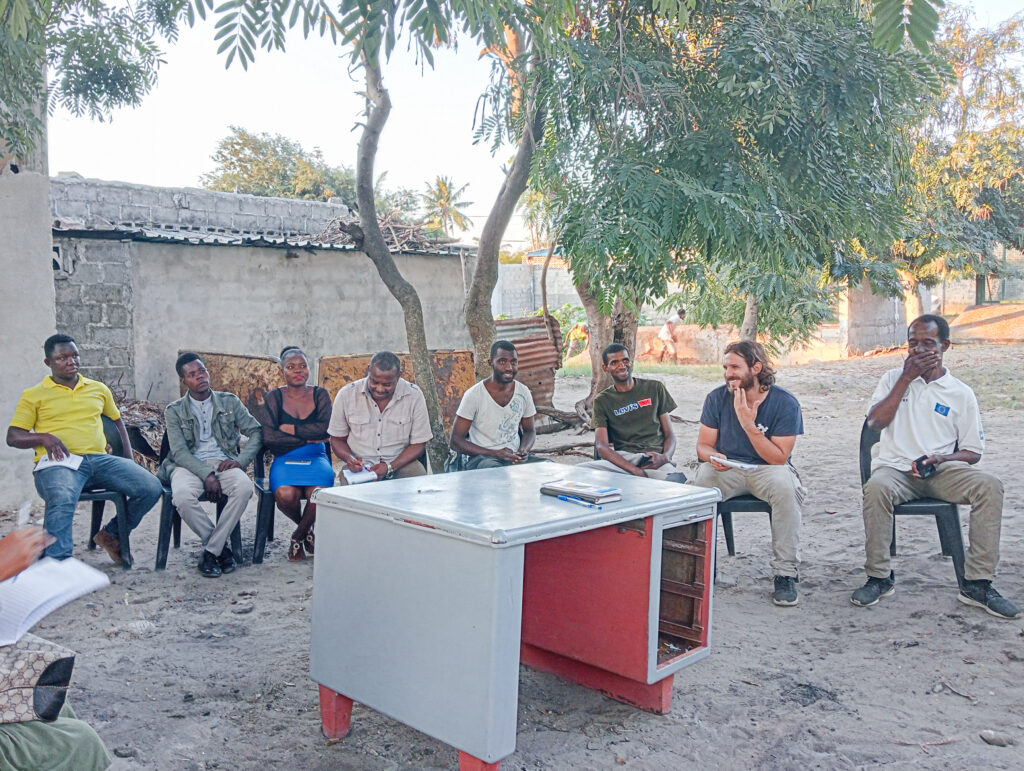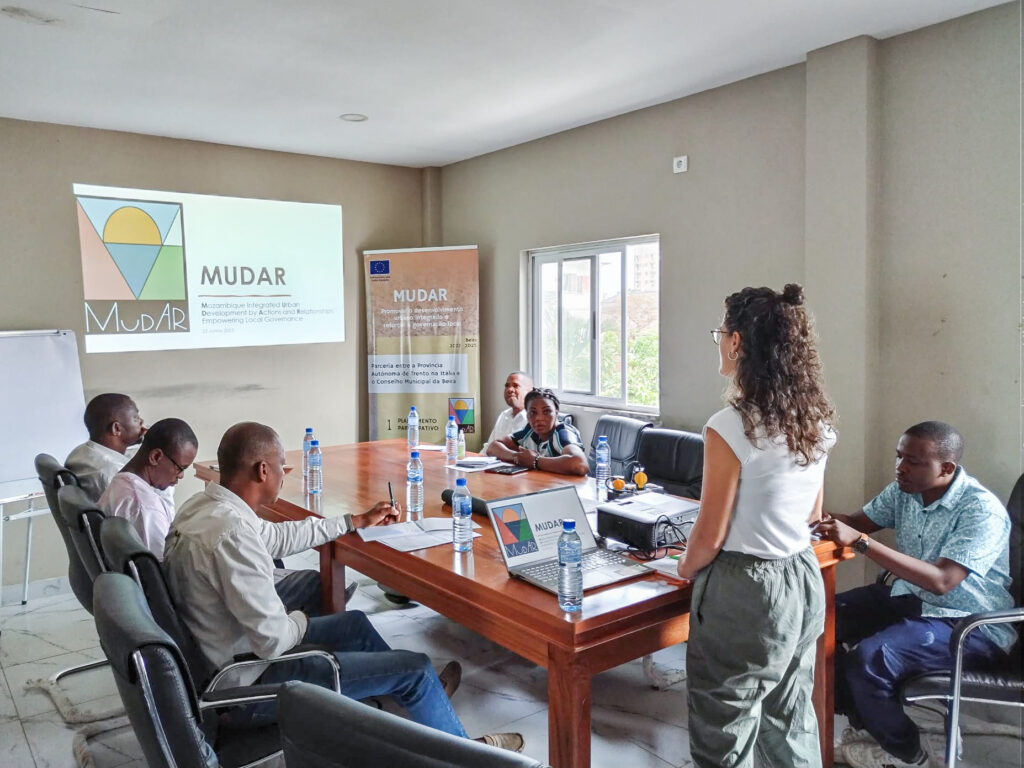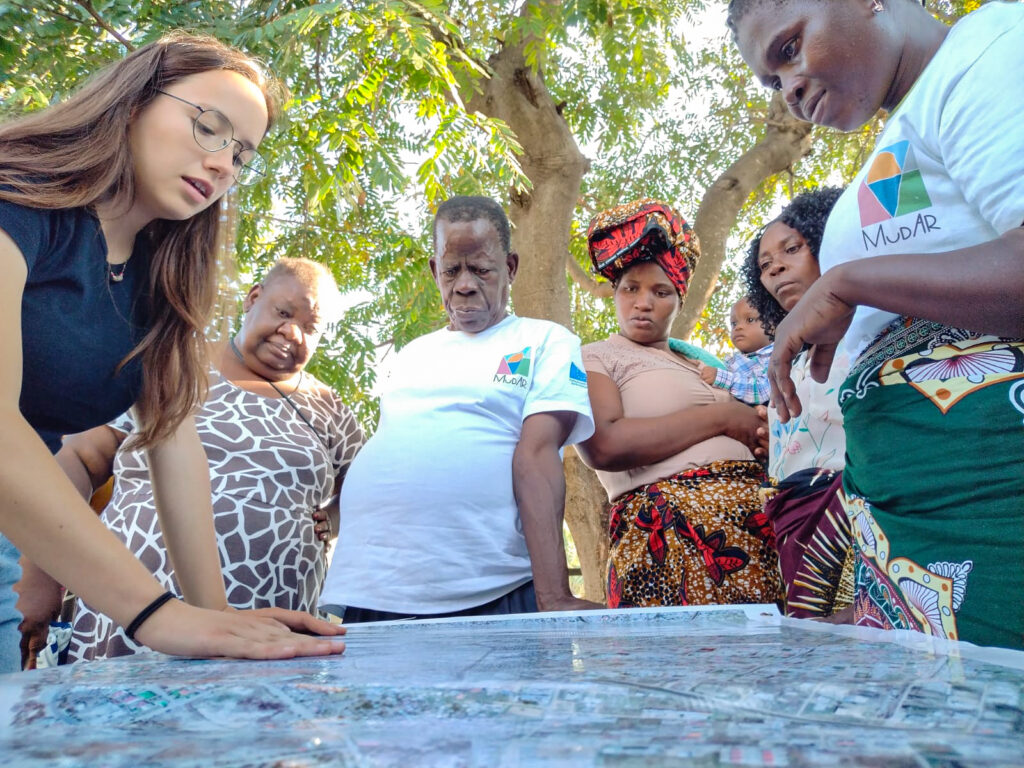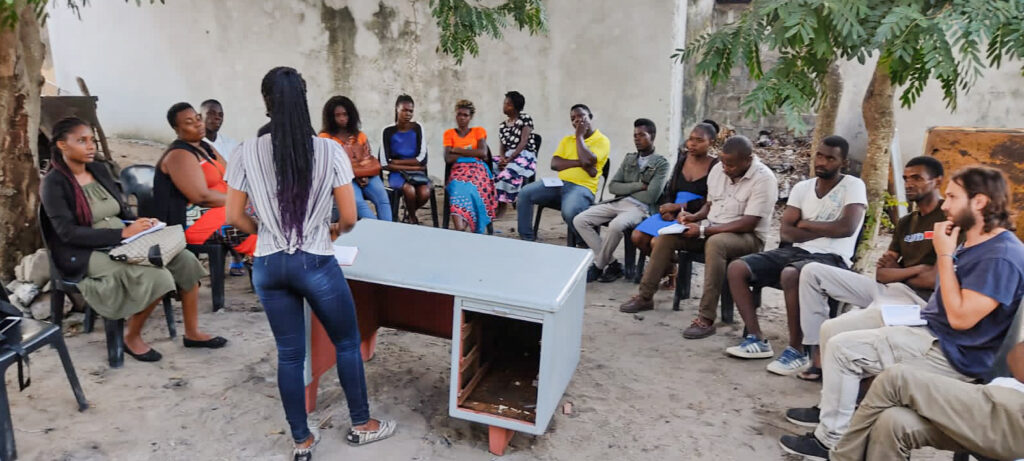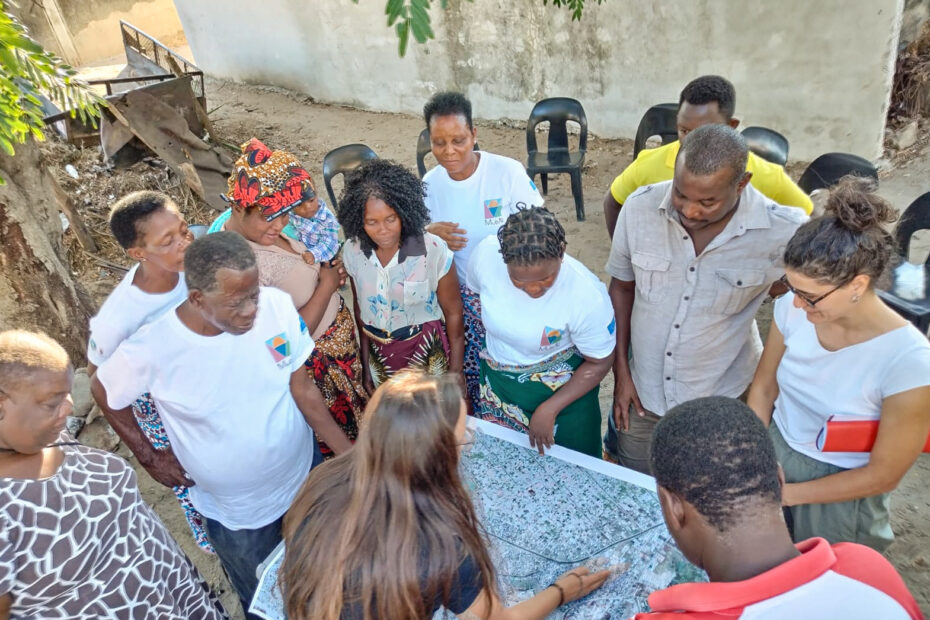One of the objectives of MUDAR is to involve the civil society and key local actors in the implementation of project activities, with the aim to create a strong sense of active citizenship and civil responsibility for the spaces they live in. Since June 2023, we have held periodic meetings with the community of Macuti, with the aim of jointly developing a pilot project for the integrated urban regeneration of a small unit of the neighbourhood, with a bottom-up involvement logic. The activities started with a cleaning campaign in the neighbourhood, i.e. days of collective cleaning of certain areas of the neighbourhood, and continued with meetings between project staff and a committee formed by community representatives.
Later on, different committees were constituted: the Technical Committee, the Municipal Accompanying Committee, the Local Accompanying Committee and the Youth Committee. Each committee plays a different role, but is interconnected with the others, with the aim to create a solid dialogue between project operators, administrators and representatives of the population, to contribute to the quality and success of the project.
The Local Accompanying Committee represents the population and consists of a number of social, religious and political activists and leaders from the neighbourhood. It plays an indispensable role in ensuring citizen ownership of the project, i.e. acquiring a sense of responsibility for the results achieved during the implementation of the various activities in the neighbourhood.
The Youth Committee is made up of boys and girls representing youth associations, including AJOMAC – Macuti Neighbourhood Youth Association, and has the task of contributing to the organisation and implementation of awareness-raising and community involvement activities in the neighbourhood.
The Municipal Accompanying Committee, on the other hand, consists of representatives of the municipality and provides support in decision-making, supervision and accompaniment of project activities. It consists of six members: three councillors (for urban planning, construction and infrastructure and the councillor for urban greenery) and three directors (coastal protection, roads and bridges and sanitation) whose areas are related to the project.
Meetings between the committees and MUDAR project representatives are not only a tool for monitoring project activities, but are a valuable opportunity to learn about the various social dynamics of the neighbourhood, which is fundamental for planning and implementing a project that responds to the needs and problems of those living in Macuti. This working methodology is one of the founding principles of CAM, which coordinates project activities in Beira. Indeed, since the beginning of its more than 20-year long history of cooperation in Mozambique, it has always placed local development and reciprocity with local actors at the centre of its work, adopting participatory methods.
